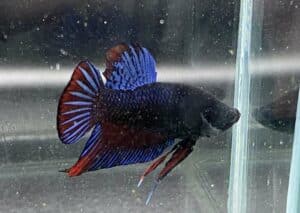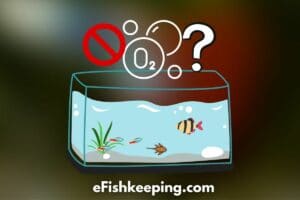Have you ever noticed your fish yawning?
Although it may appear that fish are yawning the same way humans do, they are actually just opening their mouths for various reasons, such as to engage in respiratory activities or for other purposes.
In this post, we’ll dive deep into the mysteries of fish yawning and explore the various explanations on this fascinating topic.
Definition Of Yawning
Yawning is a reflex thought to be associated with sleepiness or fatigue, and it’s something that we all do from time to time. But have you ever stopped to think about exactly what yawning is and why we do it?
To put it simply, yawning is the act of taking in a deep breath and exhaling with a prolonged “ahh” sound. It usually involves stretching the eardrums and the muscles in the face, neck, and chest.
Yawning is usually accompanied by a feeling of tiredness or boredom, and it can be contagious – seeing or hearing someone else yawn can make you yawn as well.
So why do we yawn? There are a few theories on this, but the exact reason is still not fully understood.
One theory is that yawning helps to increase oxygen intake and decrease carbon dioxide levels in the body. This could be helpful when we’re feeling tired or stressed, as it could help to increase alertness and brain function.
Another theory is that yawning causes a sudden increase in blood flow, which could help to cool the brain and body. This could be especially important when we’re feeling overheated or stressed, as it could help to lower our body temperature and relax our muscles.
It’s also possible that yawning serves as a way of communicating our state of mind to others.
The Yawning Behavior In Fish
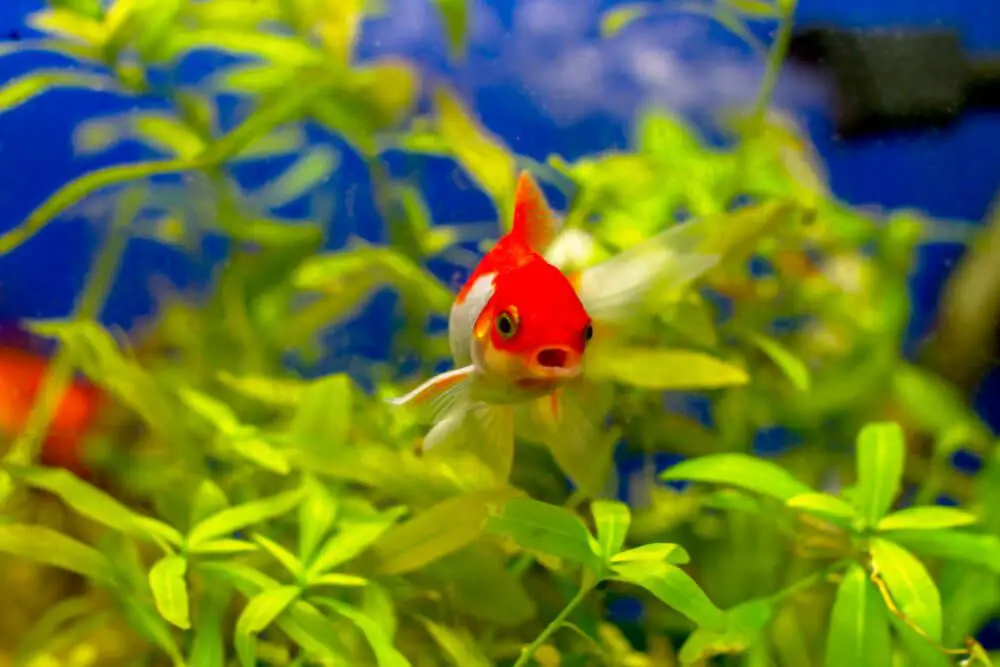
Fish are incredible creatures that have evolved to survive and thrive in a variety of underwater environments.
One adaptation that helps them to do this is their ability to open their gill covers, or operculum, in response to low oxygen concentrations in the water.
This behavior, which is sometimes referred to as “yawning,” is actually a respiratory act that helps fish breathe more efficiently and extract oxygen from the water.
Technically, fish do not yawn in the same way that humans do. Yawning in humans involves taking in a deep breath and exhaling with a prolonged “ahh” sound. Fish do not have the physical parts or brain abilities needed to yawn in that way.
So what is the function of gill flaring in fish? It is thought to be a way for fish to increase their oxygen intake and improve their respiratory efficiency. This can be especially important in environments where oxygen concentrations are low, or when fish are under stress or experiencing high levels of activity.
Overall, the gill flaring response in fish is an important adaptation that helps them to survive and thrive in their underwater habitats. While it may resemble human yawning, it is actually a unique behavior that serves a specific function in the lives of fish.
Reasons Why Fish Demonstrate Yawning-Like Behavior
There are several possible explanations for why fish open their mouths.
#1. Breathing
One of the most obvious is breathing.
Fish use their gills to consume oxygen from the water, and they need to open their mouths and gill covers to allow water to flow over their gills and extract the oxygen they need.
This behavior is especially common in species that live in oxygen-poor environments or that need to extract large amounts of oxygen in a short period of time.
#2. Communication
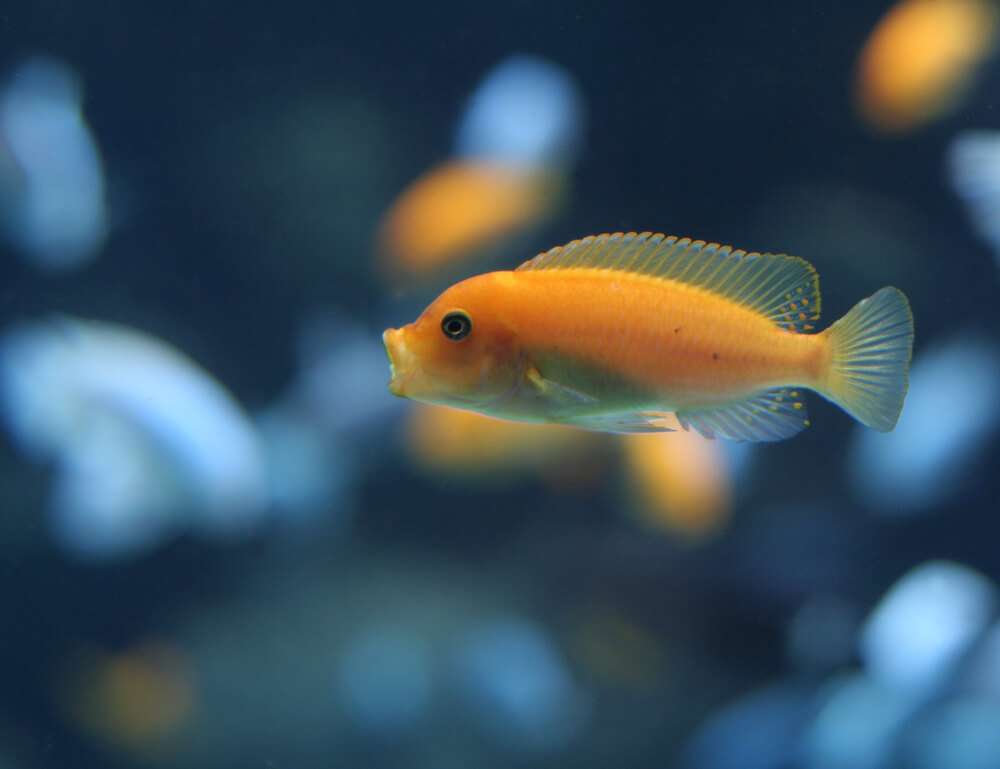
Fish may also open their mouths to communicate with other fish. Different species have their own unique forms of communication, and some use mouth movements or vocalizations to signal to others.
For example, some species of fish will open their mouths to assert their dominance or defend their territory.
One example of a species that exhibits this behavior is the cichlid, a group of fish that includes popular aquarium species such as Angelfish, Oscars, and Discus.
Cichlids are known for their vocalizations and mouth movements, which they use to communicate with other fish and establish their dominance in the social hierarchy. (In particular, male African cichlids have been found to vocalize in the process of courtship.)
Some cichlids also engage in mouth fighting when they try to protect their territory. In those instances, too, they open their mouths wide open.
#3. Territorial Dominance And Aggression
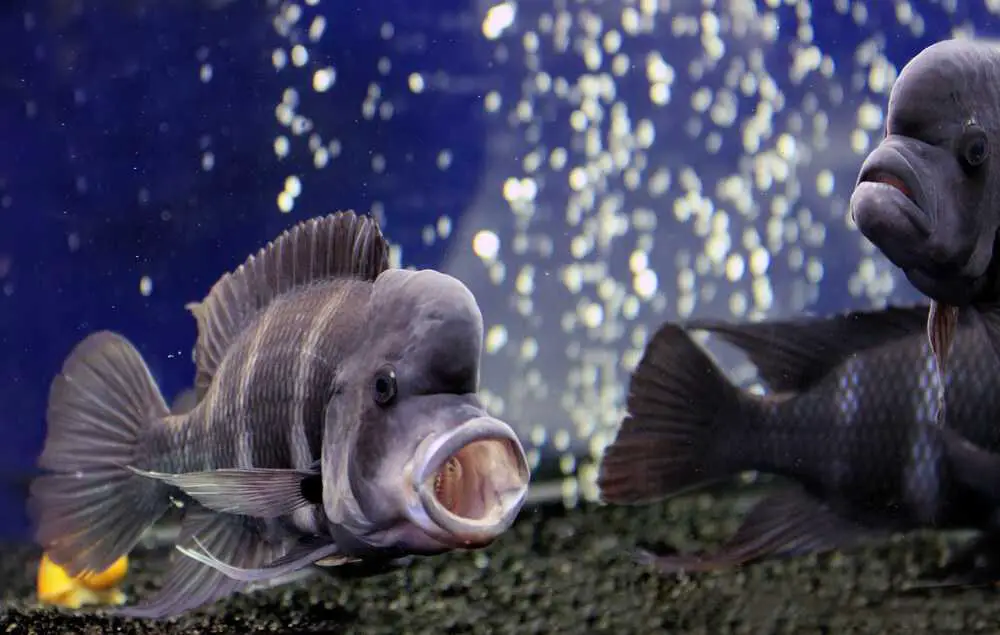
In some cases, fish may also open their mouths as a sign of aggression. Fish are territorial animals, and they will use various behaviors to defend their territory and deter intruders.
This can include biting, chasing, as well as opening their mouths.
How To Prevent Fish From Yawning-Like Behavior?
If your aquarium fish, such as a betta fish, keeps its mouth open for a long time, it might be because there isn’t enough oxygen in the tank.
To fix this, you can try to increase the oxygen levels in the tank or stop doing things that use up oxygen. This should help your fish keep its mouth closed more often.
Adding an air stone or other aeration device can help to increase the oxygen levels in your tank.
Also, avoid overstocking your tank with too many fish, as this can lead to low oxygen levels due to the high levels of waste and CO2 produced by the fish.
Instead, aim for a stocking level that is appropriate for the size of your tank and the filtration system you have in place.
It is also important to consider excess waste since it can cause low oxygen levels in several ways.
First, as organic waste decomposes, it consumes oxygen in the water. This can lead to a depletion of oxygen, especially if the tank is overcrowded or if there is a lot of excess waste present.
In addition, excess waste can also contribute to the growth of algae, which can further deplete the oxygen levels in the tank.
Algae, in particular, can consume large amounts of oxygen during photosynthesis, leading to a decrease in oxygen levels.
To prevent low oxygen levels due to excess waste, it is important to regularly clean the tank and remove any uneaten food or other organic matter. Avoid overfeeding your fish.
It is also essential to maintain good water quality by performing regular water changes and using a high-quality filter to remove excess waste from the water.
Overall, it is important to maintain a healthy balance in your fish tank by controlling waste levels and maintaining good water quality to ensure that your fish have a sufficient supply of oxygen and prevent them from yawning.
Related Read: How Long Can Fish Live Without Oxygen?
Wrapping Up
It’s important to remember that fish do not behave in the same way as humans or other land animals. The reasons behind fish behavior can be complex and varied, and it’s important to observe and study fish in their natural habitats to better understand their behavior.
So the next time you see a fish with its mouth open, don’t assume it’s simply yawning like us. It could be doing any number of things, from breathing to communicating to defending its territory.
References:
- Guggisberg, Adrian G., et al. “Why do we yawn?.” Neuroscience & Biobehavioral Reviews 34.8 (2010): 1267-1276.
- Stanford University. “African cichlid’s noisy courtship ritual.” ScienceDaily. ScienceDaily, 13 June 2012. <www.sciencedaily.com/releases/2012/06/120613153339.htm>.
- Knight, Kathryn. “Fighting Cichlids Size up Opposition With Lateral Line.” Journal of Experimental Biology, vol. 218, no. 20, The Company of Biologists, Oct. 2015, pp. 3161–3161. Crossref, https://doi.org/10.1242/jeb.132563.
- “Yawning: Causes and Reasons for Contagious Yawning.” Medical News Today, www.medicalnewstoday.com/articles/318414. Accessed 24 Dec. 2022.
Hi! I’m Praveen Ghoshal, the founder of eFishkeeping.com. Inspired by my Dad, I got interested in fishkeeping when I was a kid. Since then, I have been involved with this hobby. Currently, I have 3 fish tanks at our home, and I enjoy this hobby with my full family. Read more about me here.


